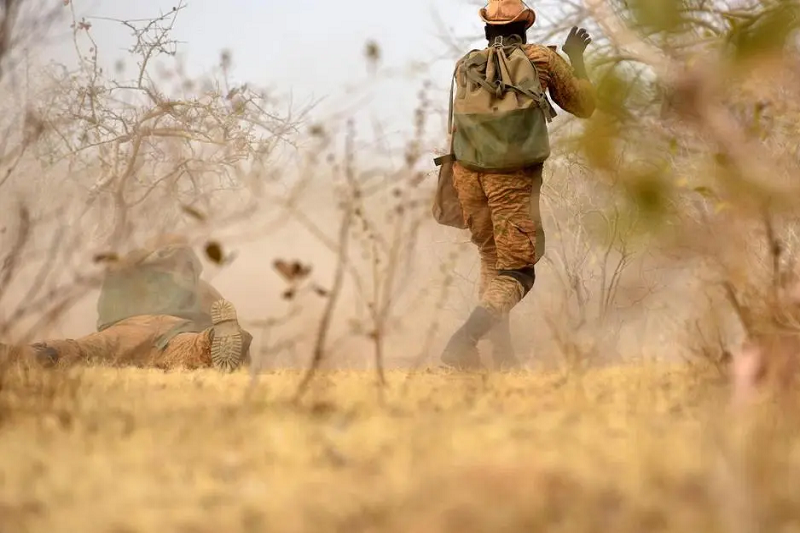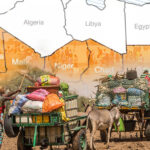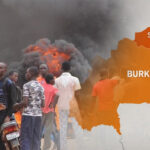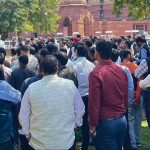
islamist armed groups in burkina faso wreak havoc targeting civilians and blocking aid reports human rights watch
According to a recent study by Human Rights Watch, armed Islamist organizations operating in Burkina Faso have committed several crimes against humanity, including the murder of civilians, the damage of property, and forced evictions. The report emphasizes the urgent need for better protective measures and more help for communities that are vulnerable. The Burkinabe transitional administration, which was put in place in 2022, has announced a “general mobilization” to retake the areas that these armed groups have taken over. The situation in Burkina Faso is examined in depth in this essay, along with the operations of the armed groups and the ongoing humanitarian crisis.
Escalating Violence and Displacement
Islamist armed groups have been carrying out attacks on villages and towns all around Burkina Faso since late 2022, leaving dozens of civilians dead and many others displaced. According to witness accounts gathered by Human Rights Watch, these armed groups have destroyed homes, stolen possessions, and used cruel methods against civilians. Additionally, they have surrounded a number of towns, denying the occupants access to life-saving supplies including food, medical treatment, and humanitarian relief.
The Influence of Islamist Armed Groups
Since 2015, Burkina Faso has been dealing with an Islamist insurgency that started in nearby Mali. According to the Economic Community of West African States (ECOWAS), the Islamic State in the Greater Sahara (ISGS) and the Al-Qaeda-affiliated Jama’at Nasr al-Islam wal Muslimin (JNIM) currently control close to 40% of Burkina Faso’s territory. Due to increasing civilian and military casualties as a result, two military coups occurred in 2022.
Keep Reading
Testimonies and Evidence
Between January and May 2023, Human Rights Watch interviewed witnesses, victims’ families, members of civil society organisations, and representatives from other countries. The attackers were recognised by witnesses as being members of Islamist armed organisations based on their tactics, target selection, clothes, and statements made during the attacks, despite the fact that no specific armed group claimed credit for the attacks. These groups now utilise displacement as a tactic to exercise control, punish cooperation with the government, and scare the local populace.
Government Response and Implications
Burkina Faso’s transitional military government has primarily relied on local militias to defend the country against the attacks as a result of the rising violence. In order to find 50,000 citizen auxiliary soldiers, or Volunteers for the Defence of the Homeland (VDPs), the government launched a recruitment drive in October 2022. These attempts, however, backfired when armed groups attacked areas they believed were aiding the militias in retaliation. Additionally, the blockades that the armed groups have erected on communities in the Sahel and Est areas have had disastrous effects on the local populace, including food shortages, starvation, and disease.
Accountability and Humanitarian Concerns
Summary killings, rape, kidnapping, and pillaging are only a few of the crimes committed in Burkina Faso by Islamist armed groups that Human Rights Watch has previously reported. However, during operations against these organisations, the nation’s armed forces and pro-government militias have also been connected to grave human rights abuses. The need for unbiased investigations and prosecutions to bring all of the offenders accountable is emphasised in the study. The African Commission on Human and Peoples’ Rights is also urged to address the deplorable circumstances in Burkina Faso, ensuring that the military authorities in charge of the transitional government take the necessary steps to safeguard civilians and look into the armed groups responsible for these atrocities.
In Burkina Faso, where Islamist armed groups continue to use violence and brutality, this has led to a humanitarian crisis where innocent citizens are being forced to flee their homes, are starving to death, and cannot access basic services. To address the deteriorating situation, immediate action is essential, including stepped-up protection measures, improved humanitarian relief, and accountability for all human rights violators.









